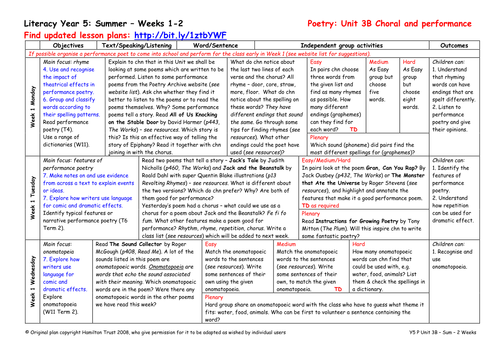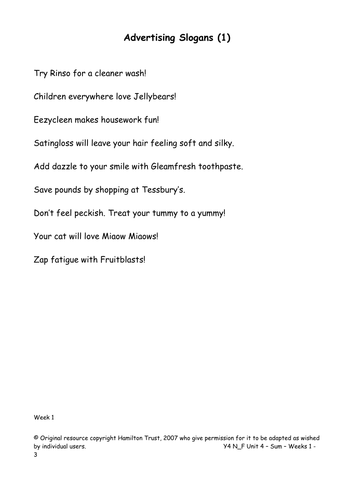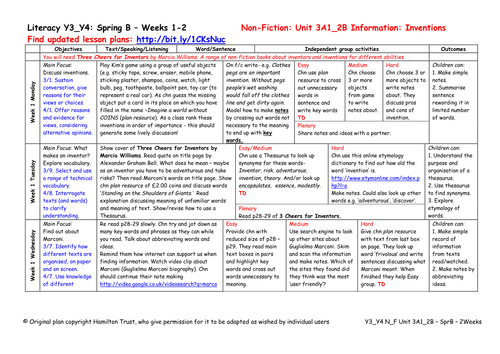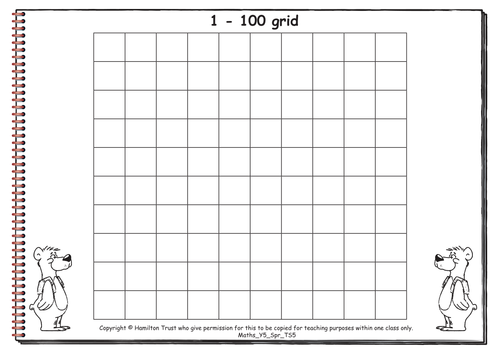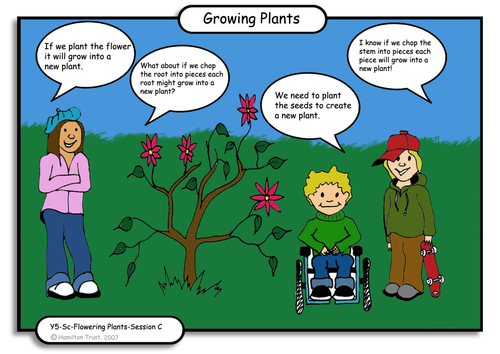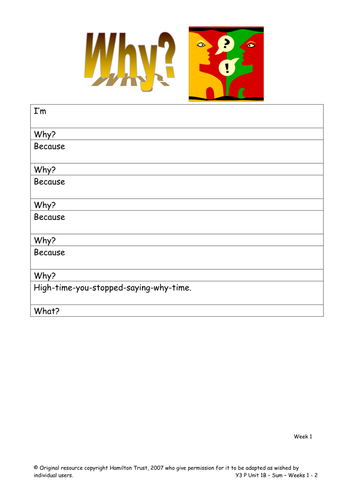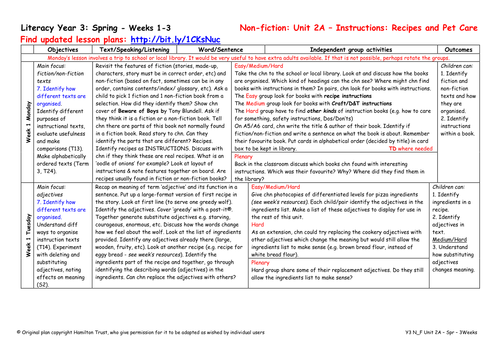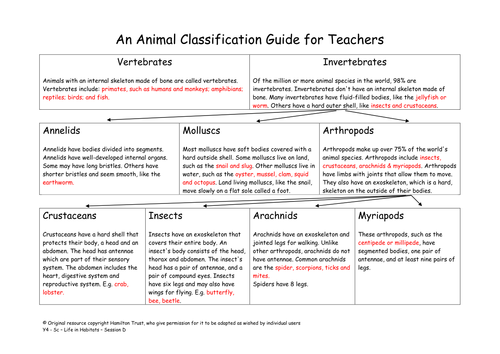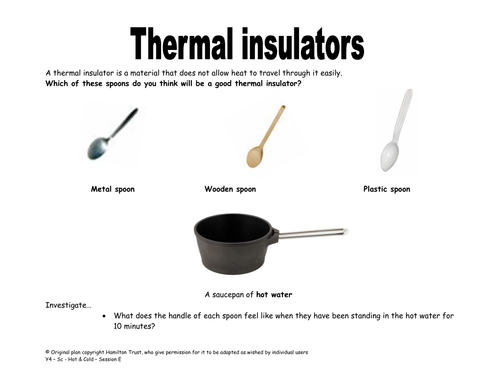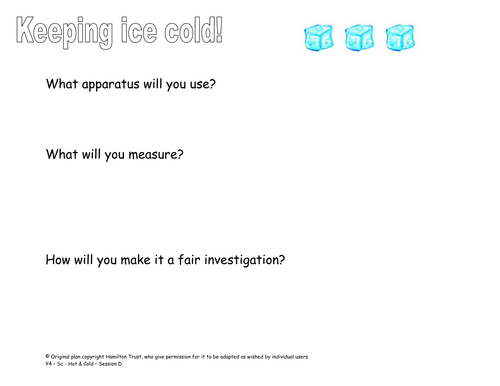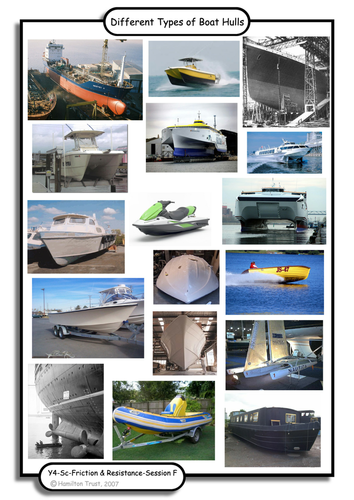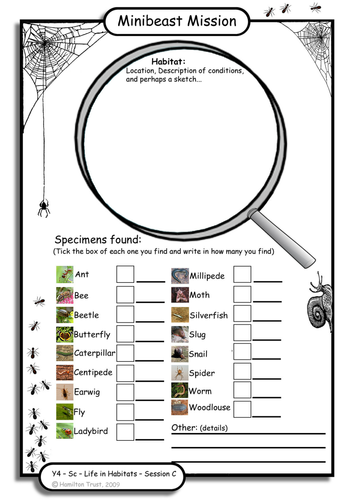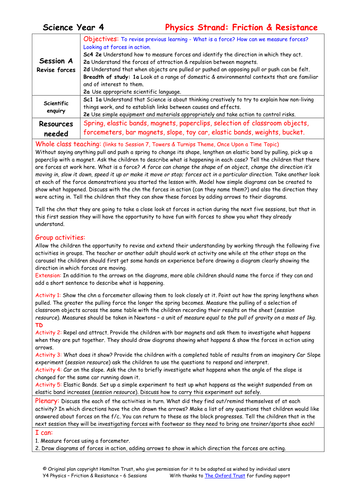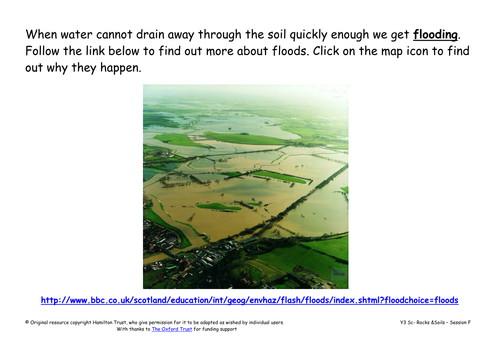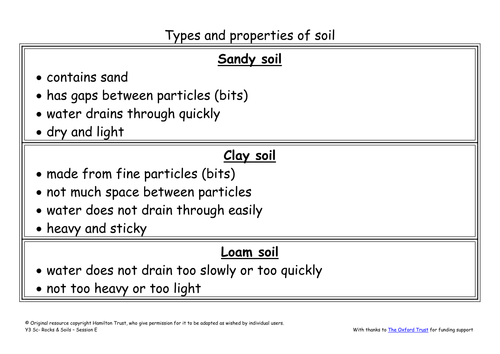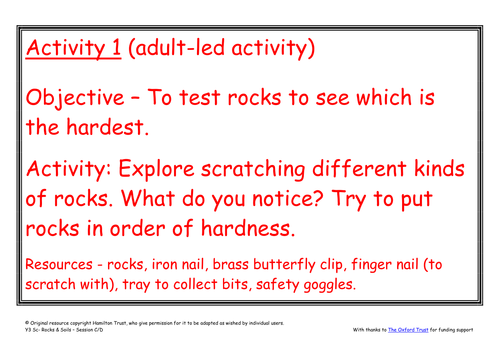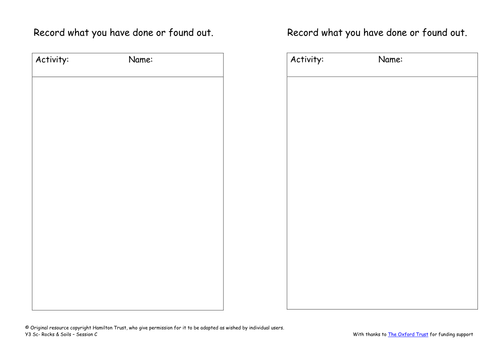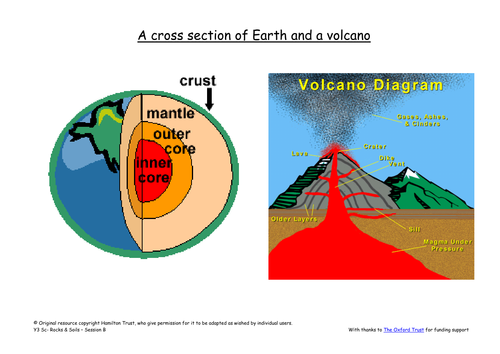
397Uploads
10045k+Views
11646k+Downloads
All resources

We Are Britain
We all have at least one thing in common – we live in Britain! Chn meet lots of different chn from all over the UK courtesy of We are Britain by B. Zephaniah. They see people move around the UK & other countries é they think about their own histories.
Suitable for Years 1 é 2.

Yr 5 Poetry Unit 3B Choral and performance
Compare performance poems that tell a story and identify the features that make a good performance poem. Children then write their own performance poetry based on a fairy tale. Perform it for an invited audience using dramatic conventions to enhance the poem.

Yr 4 NF Unit 4 Persuasive texts: Media
Children investigate persuasive writing devices in a variety of magazine and newspaper adverts and cinema and TV adverts. They produce an individual poster, work in groups to write a TV or radio advert and then create a trailer for a children’s DVD.

Yr 3/4 NF Unit 3A1-2B Information: Inventions
Explore how to find and present information about inventors and inventions. Give a talk as part of a group. Watch and listen to inventors explaining their ideas online. Make notes and contribute to a creative class book about inventors.

Maths Y5 Spring Teaching Sequence 5
Fractions, Decimals, Percentages, Ratio and proportion (five days).

Seed dispersal
Some seeds rattle, some roll, others are just bursting out all over the place! Children discover that plants disperse many seeds in different ways, what clues do their sizes, shapes, weights and textures give us about how they spread?
Suitable for Y5 pupils.

Yr 3 Unit 1B Performance and Favourite poets
Two fun weeks of performing and reviewing poetry. Children read, listen to, write, learn and perform simple ‘conversation’ poems.
They study and discuss a wide range of poems and write a review. A class book of favourite poems is made!

Yr 3 NF Unit 2A Instructions : Recipes and Pet Care
Use recipes in Beware of Boys to identify differences between fiction and non-fiction text and to stimulate recipe writing.
Make pop-up cards without pics and study recipes without ingredients to identify features. Then write instructions for pet care as a poem!

What is it?
Children find out how plants and animals are classified into groups. They then try to identify the minibeasts found during the field trip and create a key using a branching database to enable other children to identify them.
Suitable for Year 4 pupils.

Thermal insulators & conductors
The properties of materials relate to their use as everyday objects such as spoons. Children test the insulating properties of various stirrers & discuss everyday uses of materials for thermal insulation or conduction. Look at diff meanings of word conductor. Suitable for Y4 pupils.

Keeping cool!
Children continue their investigative work by finding out which material is best for keeping ice cubes cold. What are they going to measure? An understanding of how insulators stop heat from being transferred from or to something is established.
Suitable for Year 4 pupils.

Boat investigation
In this session children investigate how the shape and surface area of a boat can affect how easily it can move through the water. Children test a variety of designs before creating bar charts to show their results. Suitable for Y4 pupils.

Field trip!
Organise a field trip in the school grounds, in the local environment or further afield. Children observe and/or collect minibeasts and record them and any evidence (including plants) to indicate why the habitat is suitable for those organisms.
Suitable for Year 4 pupils.

Revise forces
It’s forces ‘n’ fun in this session as the children get the opportunity to show what they already know. Through hands on activity they use slopes, magnets and elastic bands to revise previous learning. Forcemeters at the ready! Suitable for Y4 pupils.

Soil investigation
Look at images, and discuss the effects and causes of flooding. Do a practical investigation about the permeability of 3 different types of soils including measuring. Review what children have learnt.
Suitable for Y3 pupils.

Properties of soil
Discussing how soil is formed and why it is important to look after it. Find answers to questions on the web. Closely observe a soil sample and record what is found. Look at and draw a soil profile. Discuss erosion.
Suitable for Y3 pupils.

Explore rocks further
Take part in more practical workshop activities including separating sand and stones by sieving, using ICT to research rocks, looking up vocabulary in dictionaries, sorting and naming rocks and testing the effect of vinegar on rocks.
Suitable for Y3 pupils.

Rock investigations
Learn some key vocabulary about rocks. Take part in a workshop offering a range of activities including testing hardness of rocks, sorting rocks, finding information, drawing rocks and thinking about how pebbles and sand are formed.
Suitable for Y3 pupils.

Under our feet!
Explore what is under our feet. Draw and label a cross section of the Earth. Discover the three main rock types. Test the permeability of different kinds of rocks. Find out information from websites.
Suitable for Y3 pupils.


